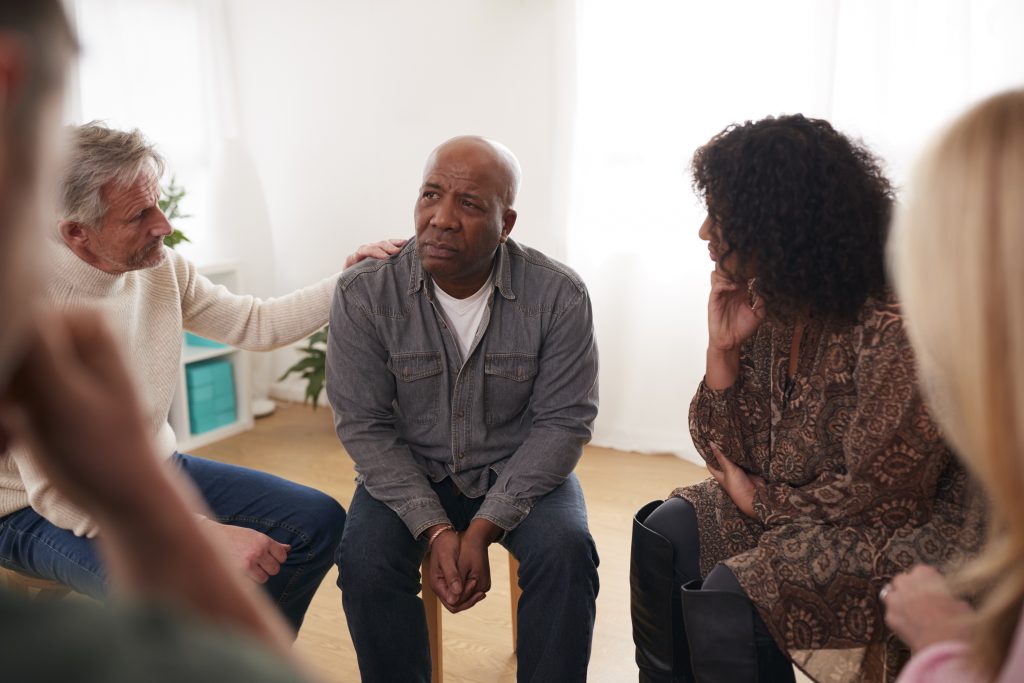What should African & African Caribbean men know about prostate cancer?
Firstly, you have unfortunately a three times higher risk of getting prostate cancer than white men of the same age. Asian and Chinese men have a lower risk than white men.
So why is that?
It is thought that this is due to genetic changes, unique to your ethnicity, which are passed down through the generations.
OK, what is prostate cancer?
The prostate gland is only found in men and sitsbelow the bladder close to the rectum (back passage). It’s the most common cancer in men and usually develops quietly over a number of years. It usually grows slowly and does not cause any problems in a man’s lifetime.
OK, when can prostate cancer affect my health?
Sometimes, for causes that are not known, it can occasionally affect men in their 40’s. However, most men who develop problems are over the age of fifty.
Are there men who are at a higher risk of developing prostate cancer?
You are almost three times more likely to get prostate cancer if your father or brother has had it, compared to a man with no family history. This risk increases if they were affected at a young age or if you have more than one affected relative. There can also be a higher risk if a bowel or breast cancer susceptibility gene change is identified in your family. If you are ofAfrican orAfrican Caribbean heritage,this risk increases three times overall.
What is the prostate for?
Situated at the centre of a man’s urinar y and reproductive area it produces “nourishing bathing fluid” f or the sperm in the semen.
What are the symptoms of prostate problems?
symptoms at all. However, if you have a problem peeing, it may mean you have a prostate problem (not necessarily cancer) that needs looking at by your GP.
Things to spot:
• Getting up more than once a night
• Urgency in needing to pee
• Poor flow, hesitancy or a feeling of still wanting to empty your bladder after you have finished
• Persistant back ache
• Erectile Dysfuntion
OK, what should I do next?
If you are concerned or worried about prostate cancer or have any of the symptoms, visit your GP or call The Tackle helpline 0800 03505302 Often problems about peeing are not cancer but caused by another problem such as an enlarged prostate.
Could my cancer be inherited?
Occasionally prostate cancer can have a strong inherited component.Please mention to your doctor if anyone else in your family has had prostate,breast, ovarian or bowel cancer.This is particularly relevant for men diagnosed under the age of 60.
Genetic testing via a blood test can sometimes be offered to understand the cause of cancer in families and determine who else might be at risk. Where an altered copy of a familial susceptibility to prostate cancer gene has been identified,such as BRCA1 or BRCA2, screening can then be offered to “at risk relatives”from the age of forty.
What support is available to me as an African and African Caribbean man if I should need it?
Via our Help Line,Tackle can put you in touch other African Caribbean men who have been successfully treated for prostate cancer, so you that can have a helpful,informative conversation with them.
Do you have any other support?
Yes, we can put you in touch with a local support where you meet other prostate cancer patients on a regular basis.Tackle also holds conferences where it is possible to learn about the disease and how best to fight it
What area does Tackle Prostate Cancer cover and what does it do?
Tackle Prostate Cancer is the only national, patient led prostate cancer charity. It operates throughout England and Wales. It campaigns for better treatment and awareness of prostate cancer and has a seat as a patients representative on NICE committees for new prostate cancer drugs and treatments. Most recently, we have been working on the PSA Consensus with key parties from across the UK to inform the debate on PSA testing. Tackle recommends that black men or men with a family history of the disease, should have a PSA test from the age of 45 – in consultation with their medical practitioner.



